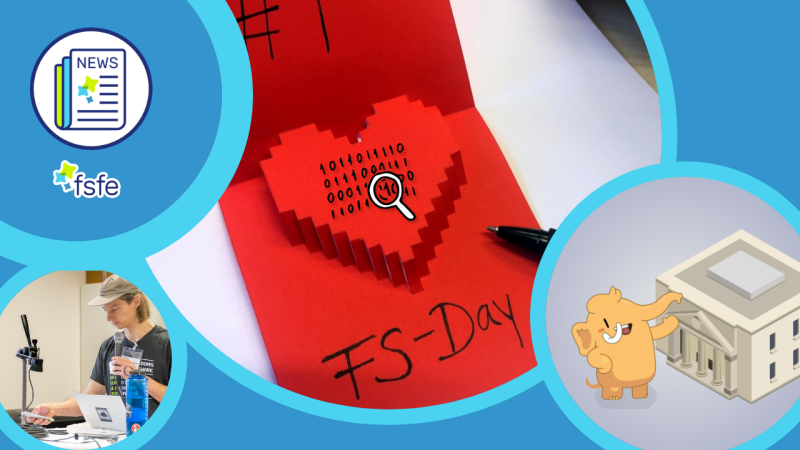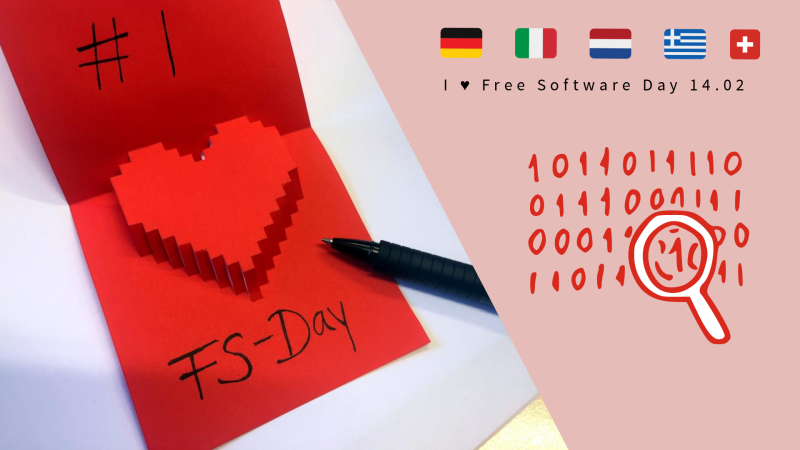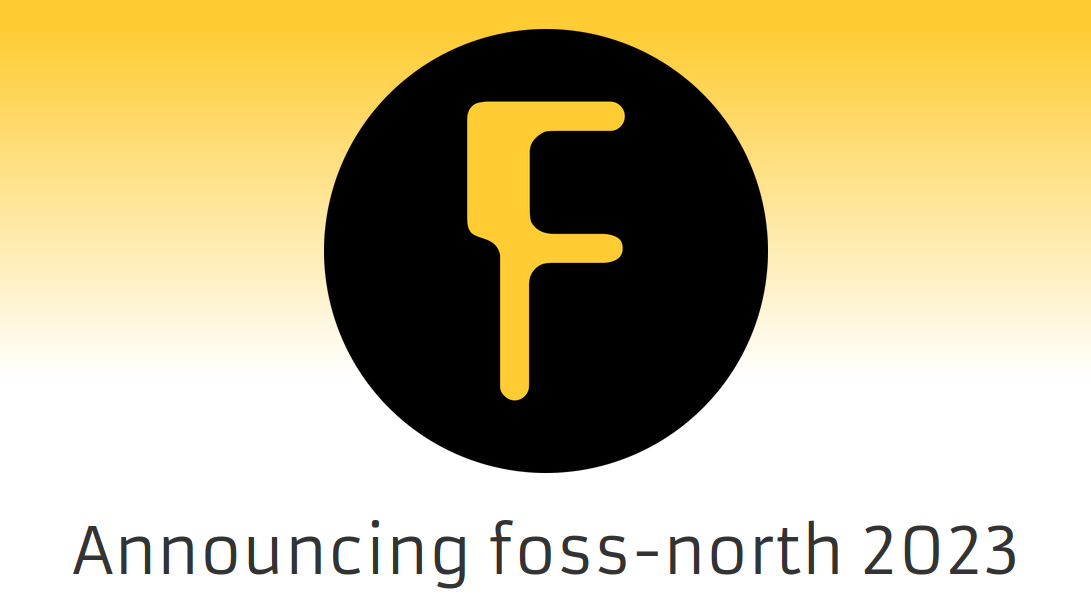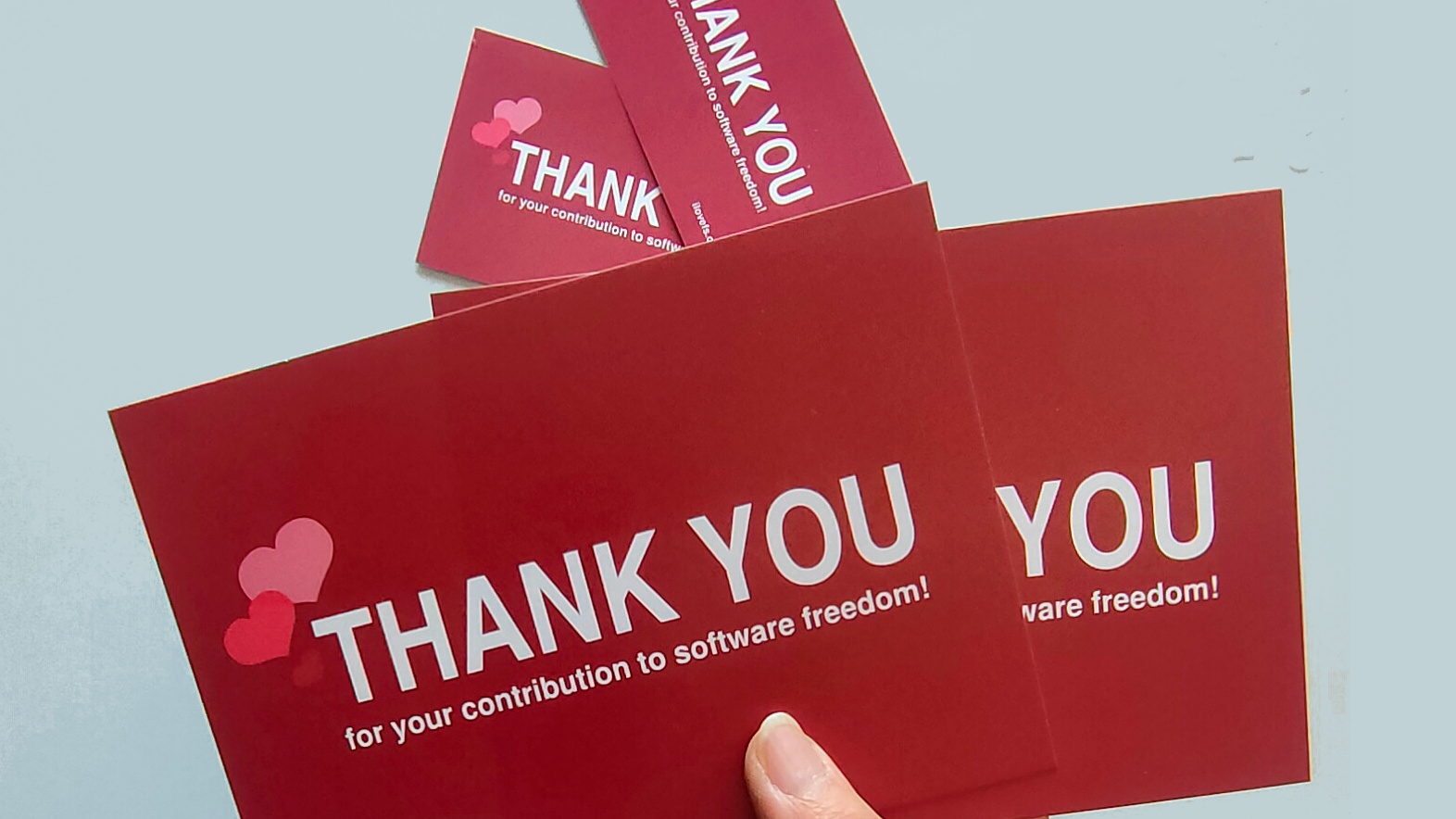I Love Free Software +++ Public authorities in Fediverse
In this issue we invite public institutions to join free,
decentralised social networks. Watch our info-session on German
municipalities using Free Software. An FSFE volunteer doubts the
reliability of AI-generated text. I Love Free Software Day is just
around the corner. Celebrate with us!

I Love Free Software Day
We know you love Free Software. We do too. Think of the program that
means the most for you, or one that positively surprised you this
year. Share a ‘thank you’ message on the 14th of February with
#ilovefs to show your appreciation to its contributors. We celebrate
‘I Love Free Software Day’ with events too. Join us
here:

- 🇩🇪 Germany - Berlin, Frankfurt a.M., Bonn, Hamburg
- 🇬🇷 Greece - Thessaloniki
- 🇮🇹 Italy - online, Merano
- 🇳🇱 Netherlands - Arnhem
- 🇨🇭 Switzerland - Zurich
Invite public bodies to the Fediverse
If public
bodies are on social networks they should also talk with Fediverse
users. FediGov, the campaign of the FSFE’s Swiss country team and
GNU/Linux.ch, asks public bodies to use Mastodon, Pixelfeld and
Peertube. Join the campaign and demand that your public institutions
use ethical communication channels. The European
Commission and several EU public
institutions are already on Mastodon.
Video and mailing list on German municipalities
Dortmund is opening a new chapter in Free Software governance and
inspiring municipalities across Germany. The recording of the
dedicated event we hosted on 11 January 2023 is now online.
Are you interested in Free Software and working in a municipal
administration or in politics? Join our new
mailing list to exchange information about Free Software in local
institutions!
A word from the Planet
Watermarks that can verify whether a text was produced using AI, the
provision of sources that led to the output of the text, or the
count of back-references to a page can increase trust in AI-
generated texts, according
to FSFE suporter Vincent Lequertier. You can follow the thoughts
of members of the FSFE community in our Planet.
Past events
Groups
Germany: The FSFE local group in
Bonn met online on 9 January. The group discussed how to make
large amounts of data (JSONs) searchable in a browser and how to
integrate Free Software Text-To-Speech into a blog. The question of
coding without a 'real' computer led to a brief look at
Android IDEs for mobile app development. Kilux and Chemnitzer Linux
Tage might be good opportunities to meet besides FrOScon. The group
is also interested in free musical instruments, this time featuring
an opentheremin. Meanwhile, the FSFE local group in
Berlin was discussing with the youth Free Software in schools and
the benefits of the AlekSIS
system.
Greece: In January the group discussed practices
about translating
Free Software into Greek. The group shared collaborative
translation platforms and glossaries.
Netherlands: The government released the code of
DigiD, the identity verification app. This great news comes after
some months of advocacy by the team. This
victory was therefore the main topic of the last monthly meeting, in
January.
Switzerland: After a successful launch of the
FediGov campaign, the Zurich group
discussed next steps. Creating a Mastodon instance for public
institutions in Switzerland or contacting data protection officers
are ongoing ideas.
Women: In January the FSFE Women group discussed the
Python tools Conda,
Poetry, and mypy.
Translators: 337 FSFE translations in 2022! Our
exceptional translators team
has created 337 new files in 2022. The leader is Italian with 120 new
pages, followed by Dutch, German, Spanish, and Portuguese. Get
involved by proofreading or translating our material.
Contribute to our Newsletter
If you would like to share any thoughts, pictures, or news, please
send them to us. As always, the address is newsletter@fsfe.org.
We're looking forward to hearing from you! If you also want to
support us and our work, join our community and support us with a donation or a
monthly contribution. Thanks to our community and all the
volunteers, supporters, and donors who make our work possible. And
thanks to our translators, who enable you to read this newsletter in
your native languages.
Your editor, Fani Partsafyllidou
Support FSFE




